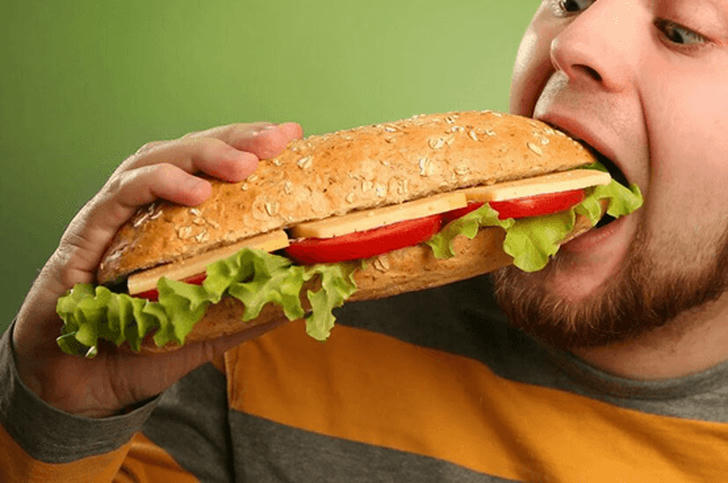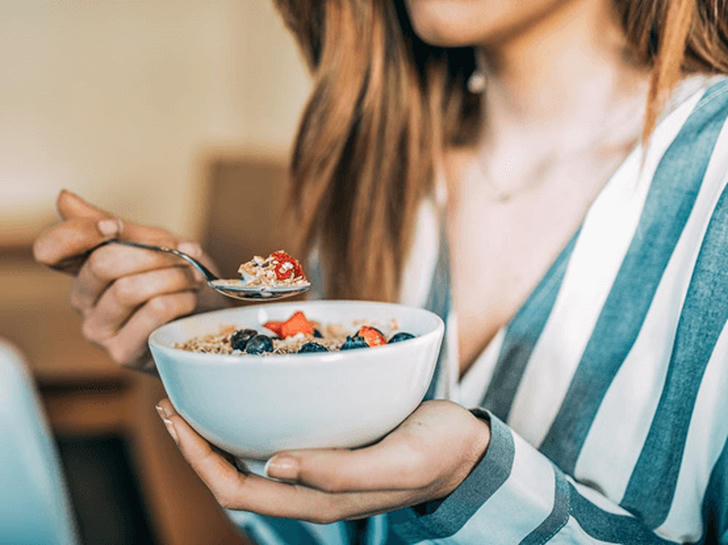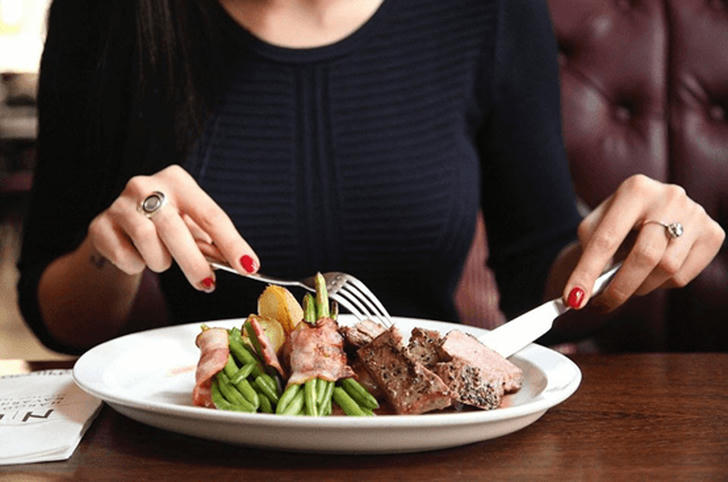Six Simple Ways to Stop Overeating

Overeating can be very easy to do, especially when you indulge in an unusually delicious meal. "Overeating is eating much more than your body needs," says Kelly Arinder, a health dietitian at Houston Methodist Church. "Whether it's intentional or not, we all do it at some point. Short-term symptoms are often associated with an upset stomach, but overeating can have long-term consequences that can negatively impact your health over time." Fortunately, there are some strategies that could help cut down on overeating. Here are six easy and effective ways that can help to stop overeating.
1. Eat breakfast

"Breakfast is the most important meal of the day." Study shows that, people who don’t eat breakfast are tend to have a higher incidence of heart disease. Even worse, people who skip breakfast are prone to eat much more when it’s late night. Eating a protein-rich, balanced breakfast every morning will help curb hunger and reduce your chances of snacking before lunch.
2. Slow down

Eating slowly is one of the best strategies for quitting overeating. The slower you eat, the faster you feel full. Put down the knife and fork after each bite to slow down eating. Study shows that the person who eat slowly is likely to be thinner.
3. Use smaller plates

Keep it in mind - The larger the plate, the more likely you are to overeat. A study by Cornell University claimed that halving plate size leads to reduce food consumption by an average of 30%. Switch to a smaller sized plate, and you’ll eat less.
4. Pay attention to your emotions

Most people eat compulsively to make themselves feel better to overcome stress. You need to pay more attention to your emotions and become aware of the reasons for overeating. When feeling stressed, you can try split meals, and when going out to eat, put half of your meals in a box for later use before you start eating.
5. Drink a full glass of water before eating your meal

Drinking a full glass of water before eating your meal aids to make you feel full, which lessens your likelihood of overeating. Make water your drink of choice, and decrease the amount of consumption of soda, alcohol and other high calorie or sodium beverages.
6. Include a fiber source with meals

Filling up your plate with high-fiber food like non-starchy vegetables. This type of dieting not only works effective for weight maintenance but also won’t lead to overeating. Though they may weigh the same, a full plate of roasted vegetables contain much less calories of several pieces of cheese. Since cheese is less filling, you may have to eat more than your body actually needs before you physically feel full.

